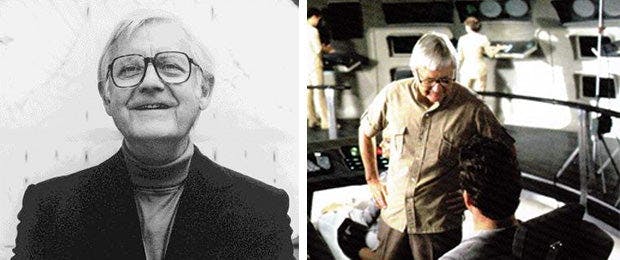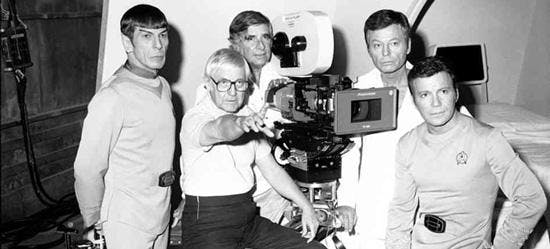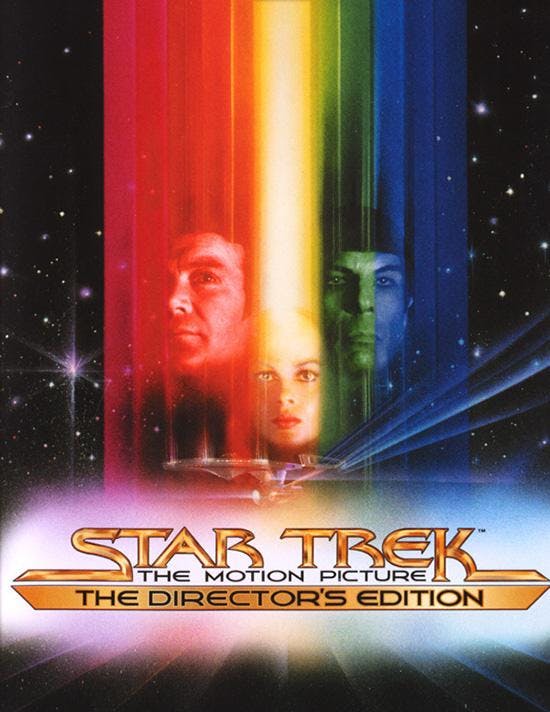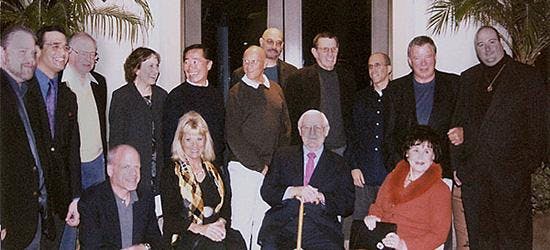Published Sep 10, 2014
Remembering Director Robert Wise
Remembering Director Robert Wise

Robert Wise, were he still alive, would be 100 years old today. Sadly, the respected director died of a heart attack on September 14, 2005, at the age of 91. He left behind some remarkable work. Wise edited Orson Welles’ groundbreaking Citizen Kane, earning an Academy Award nomination in the Best Editing category for his efforts. He went on to direct such films as The Magnificent Ambersons, The Day the Earth Stood Still, West Side Story, The Haunting, The Sound of Music, The Sand Pebbles, The Andromeda Strain, Audrey Rose and, of course, Star Trek: The Motion Picture, winning Oscars as Best Director for both West Side Story and The Sound of Music.

Gene Roddenberry and Paramount Pictures discussed many potential directors before Wise boarded The Motion Picture, which rose from the ashes of the aborted Phase II television series. Wise, appropriately, had been one of Roddenberry’s idols. “I wasn't a Trekkie, though I'd seen a few episodes," Wise recounted to the Philadelphia Daily News during an interview back in 1994. "The reason I did it was I'd done The Day the Earth Stood Still (1951) and The Andromeda Strain (1971), which were earthbound, and I thought it was time I got into the heavens."
“By far, and for various reasons, it wasn't one of my favorite experiences," Wise went on to say. “The day-to-day on the set, directing the actors and working with Gene (Roddenberry), was fine, but we were rewriting the script every day, to the very last day of shooting.”
Special effects nightmares ensued as well, adding millions of dollars to the movie’s budget. Wise completed The Motion Picture, which opened to mixed reviews but solid box office on December 7, 1979. "I was pleased with the film," Wise told the Daily News. “We could've had a better film if I'd had more time to cut it, but the studio was afraid word would get out if we tinkered with it. When it came on TV, they added 12 minutes, which we'd cut for a reason. I hated that version. It holds up better than I anticipated. The fact that we came in, got it done despite the problems and made the release date was really quite an achievement."
At the time of that interview, Star Trek Generations – the seventh Star Trek feature – had been released. Also, Star Trek: The Next Generation had ended its run, while Star Trek: Deep Space Nine was in its third season. Wise likened himself to a guinea pig used to see if Star Trek could succeed on the big screen. "We proved it (could)," he said. "I sure had no idea it would spawn all those films and series. They're up to what, a seventh film? And another series. That amazes me."
Many fans actually don’t realize the importance of Star Trek: The Motion Picture. Paramount took a huge gamble on the film and it paid off, if not so much financially with that first film, then in the long run. The Motion Picture fed the fans’ desire for more – and new -- Trek productions; after all, how many times could fans watch repeats of The Original Series? It turned out to be event movie-going; fans attended screenings in costume and, most importantly, they turned up: no fans for The Motion Picture would have meant no Wrath of Khan, The Next Generation, etc. And for all the troubles with the creation and delivery of the special effects, the work of Oscar-winning effects pros Douglas Trumbull and John Dykstra – who swooped in late and saved the day -- broke new ground and raised the bar for every science fiction film that followed.

Several years after that interview with the Philadelphia Daily News, Wise was given the opportunity to revisit Star Trek: The Motion Picture. The result was Star Trek: The Motion Picture – The Director’s Edition. In the booklet that accompanied the DVD set, Wise wrote… “In addition to finding a new, and I feel, proper editorial balance for the film, we have also completed those effects shots and scenes which we had to abort in 1979, and have given the film a proper final sound mix. It has been an opportunity which I never believed would happen, and one for which I am grateful beyond words. Gene Roddenberry was right... time travel IS possible.”
In advance of this article, StarTrek.com caught up with David C. Fein, longtime Wise friend, colleague and producer of The Director’s Edition, who shared his memories of realizing that upgraded, re-edited version, which really does improve on the theatrical release.

Wise at Star Trek: The Director's Edition premiere; Fein on far right
“To Bob, Star Trek was always ‘The one that got away...,’” Fein said. “He was a perfectionist who methodically and precisely guided his films with complete confidence and vision. It was an honor and a privilege to journey back with him and bring it back home. He had a certain unique smile that I only saw when he spoke of the pride he had knowing it was finally his vision. The Director's Edition is his version, and the version he wanted people to enjoy long after he passed. I'll forever miss my mentor and friend.”

